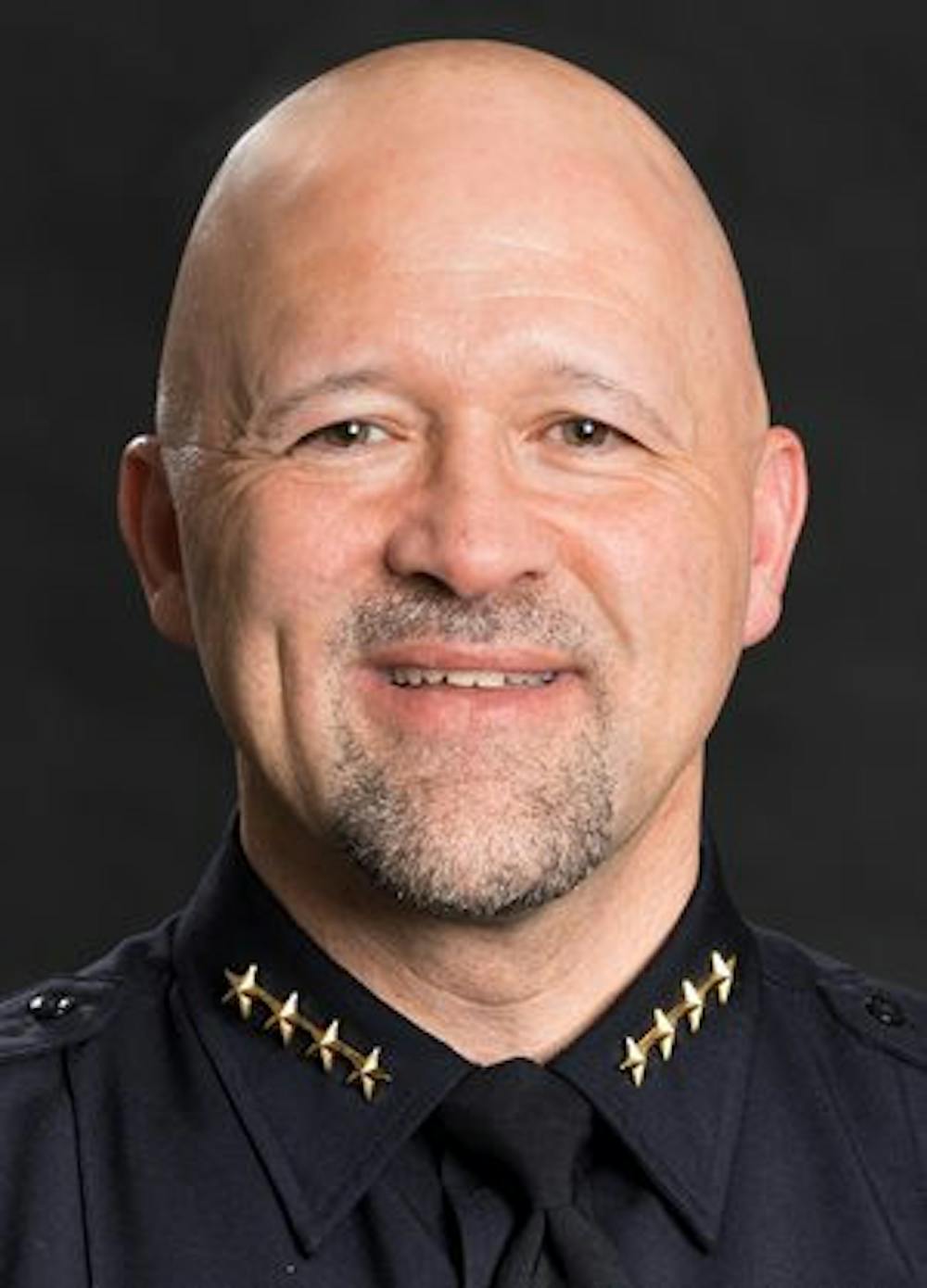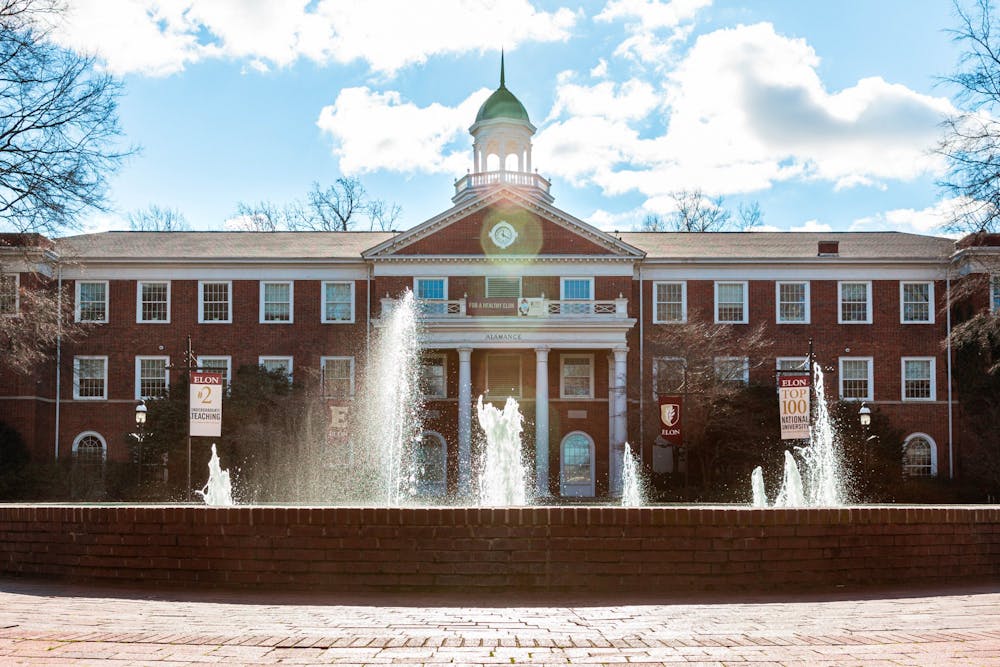
Elon University released the 2021 Fire and Safety Report Sept. 30. The report, required by federal law, details crime from 2020-21 on Elon’s main campus, School of Law in Greensboro and off-campus property controlled by the university. The report also provides information about other resources that support campus safety.
Ten rapes were reported to the university on campus in residential facilities in 2021, according to the report.
Chief of Campus Police Joe LeMire joined Elon Local News Oct. 3 to discuss the report, takeaways and building trust between officers and the campus community.
This interview has been edited for clarity.
What stood out to you in the 2021 Fire and Safety report?
“I think there were two areas where we saw some increases in sexual violence, rape and an increase in dating violence that we saw from the previous two years. So 2021 saw an increase of about seven from that, which seems like a high number. But to us, there's some positive lining to that. When you see an increase like that if we know that five to 15% of sexual violence is experienced by women and men on college campuses, that's kind of a higher number than that. But people don't always report. So if you're reporting zero, that doesn't mean there's zero sexual violence. So an increase sometimes means we built the infrastructure to get people to report to campus. We have Title IX, we have police, we have victim advocacy and we have counseling. An increase sometimes tells you that more people are coming forward and getting the services that they need. So that stuck out as a negative because you never want to see any sexual violence, but it's also positive to know that people are getting the help that they need. Sometimes you want to see that part of it. Well then in the future, you get that number.”
Does this number that was released Sept. 30, include Student Conduct cases? Are they required to report cases to you?
“We usually report from the police first, then you go to conduct, then you go to Title IX and constantly in some other areas that are confidential in nature. So they don't give us the names necessarily, but we get the numbers to be encompassing of all that. That gets reported to various areas, including student advocacy.
What are the advantages to reporting to the police as opposed to reporting it through Student Conduct anonymously?
“On the college campus, there are so many resources that are available. Dating violence, domestic violence and sexual assault are all power crimes. You really want to get that power back and some of that power is getting that help, helping with the self-esteem, helping yourself physically, medical care, all that stuff that might go with it, and then helping you through the process. But we build it up so if you report it to the police, you don't have to pursue prosecution. If you're reporting it to Title IX, the power is on your side to decide how you want to handle it. So telling people to report it does not pigeonhole them in the way they handle it. We put the power back on the person to let them decide, ‘How do I want to do this? What's best for me personally?’ If they want prosecution then we pursue it with them. If they want the Title IX process or the conduct process, they have those choices. We never tell someone you have to pursue it through the police. We're there to help.”
How do you establish trust between your officers and the victim to encourage reporting?
“We go through a lot of training. Right now, we're building up a sensitive crimes team in the police department. So we have male and female officers that their specialty will be dealing with sensitive crimes sometimes that's sexual assault, sometimes it's race-based crimes, and religion-based crimes, but we also worked with other agencies on campus. We just found out that we got the grant through the Office of Violence Against Women campus grant to reduce sexual violence, relationship violence and stalking. And that money is going to go towards those resources. It's going to go toward training and collaboration with off-campus so we can work with the town of Elon, which often deals with our students if a crime was committed off campus, gender-based.”


